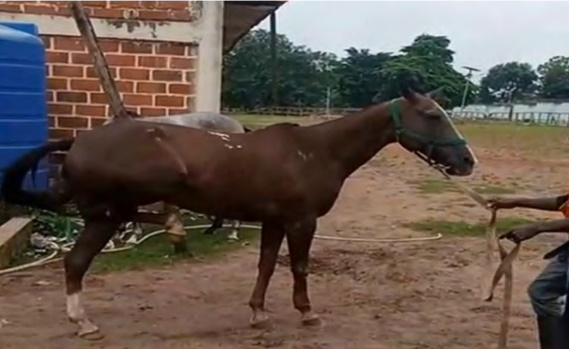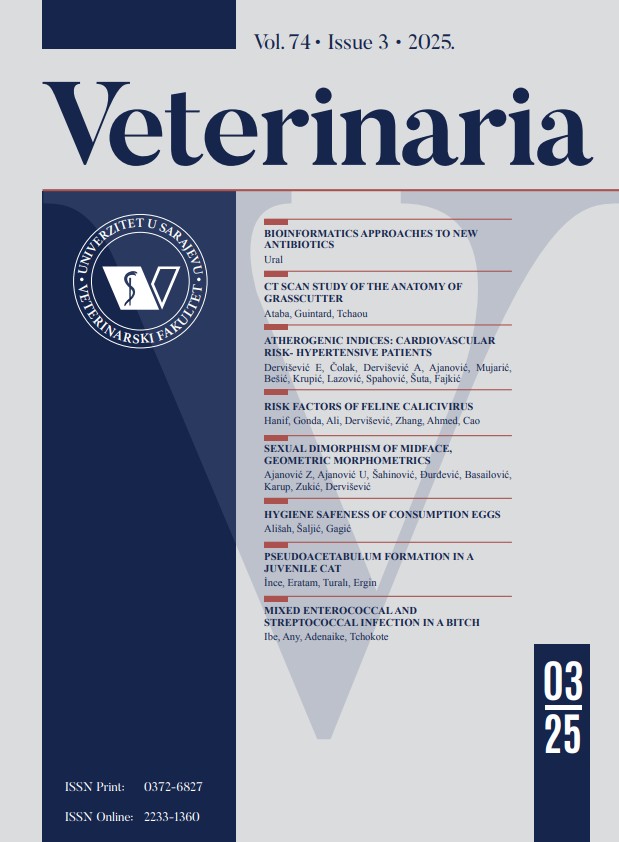Management of idiopathic stringhalt in a 14-year-old thoroughbred gelding in Nigeria: A Case Report
DOI:
https://doi.org/10.51607/22331360.2024.73.1.67Keywords:
Aberrant gait, hind limb, horse, hyperflexion, stableAbstract
Stringhalt is characterised by delayed protraction and excessive flexion of the hock during progression and may affect one or both pelvic limbs. No instances of stringhalt in Nigeria have been reported. Stringhalt, a rare neuromuscular disorder in horses, underscores the importance of documenting cases to enhance collective understanding. The present case aimed to describe the successful management of idiopathic stringhalt in a 14-year-old Thoroughbred gelding. The 500-kg gelding in a stable of 20 horses exhibited sudden abnormal movements in the right hind leg, noticed three days prior. The horse displayed normal vital parameters, exhibiting a distinct gait with moderate hyperflexion in the affected hind limb during walking and trotting. Based on the history and clinical examination, the diagnosis was unilateral idiopathic stringhalt, grade III. The horse received intravenous phenytoin sodium (15 mg/kg) and intramuscular multivitamin and amino acids injection (15 ml/ horse) for five days, leading to the complete resolution of clinical signs and the resumption of normal activity. Prompt diagnosis and treatment are crucial for managing idiopathic stringhalt in
horses. The successful outcome with phenytoin sodium and multivitamin supplementation highlights their efficacy. Further studies on stringhalt’s aetiology in Nigeria are warranted.

Downloads
Published
How to Cite
Issue
Section
License
Copyright (c) 2024 Emmanuel Richard Edeh, Melford Esuabom, Olumide Akinniyi, David Oludare Omoniwa, Kankani Sambo Wonder, Sunday Idoko Idoko, Philip Wayuta Mshelia

This work is licensed under a Creative Commons Attribution 4.0 International License.







